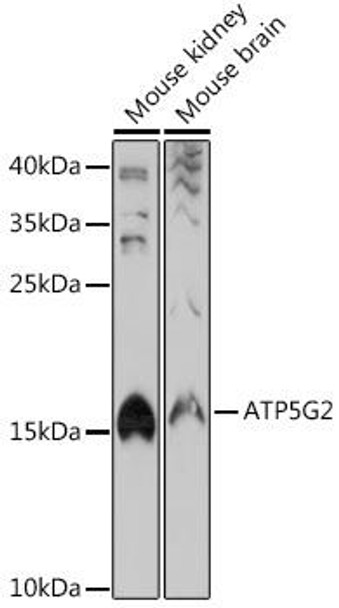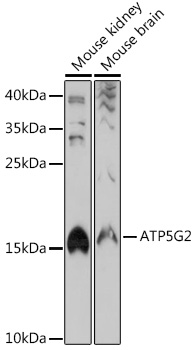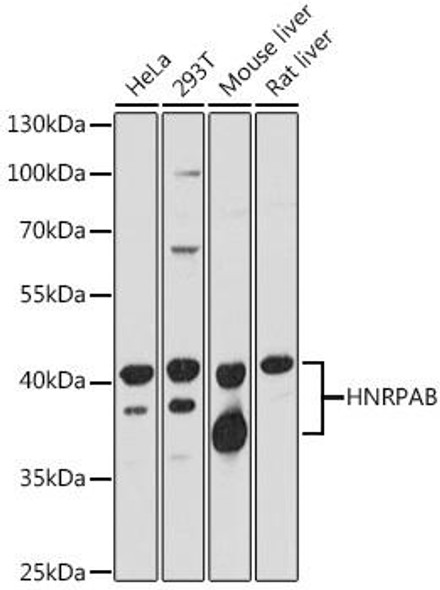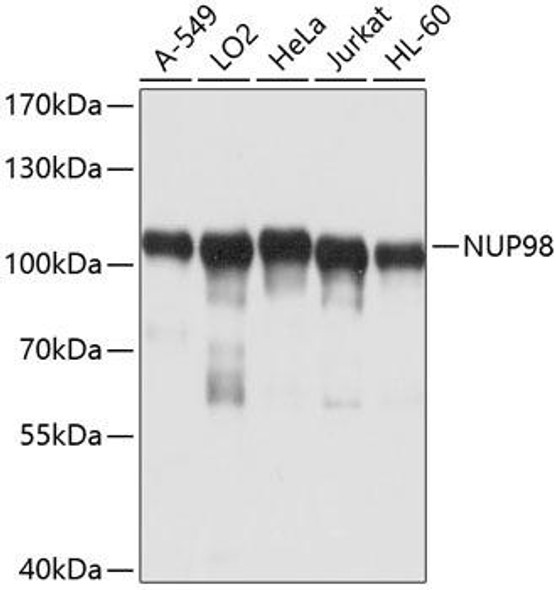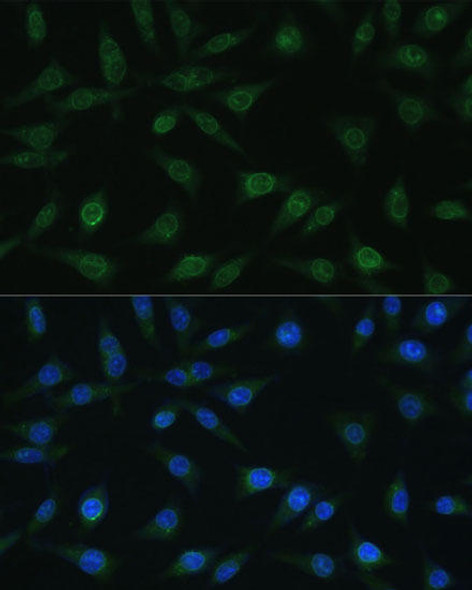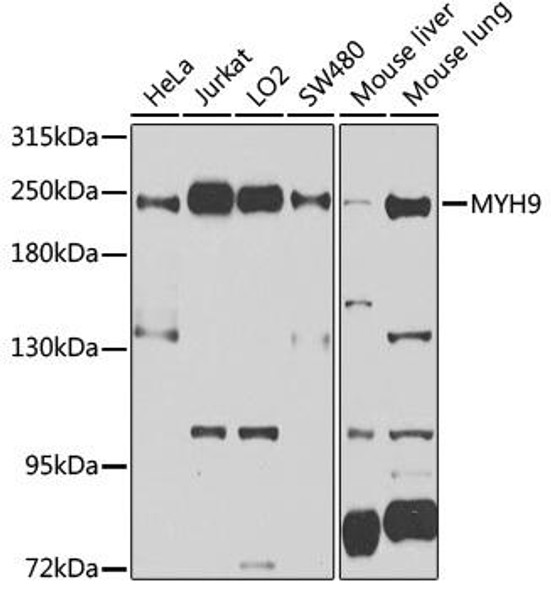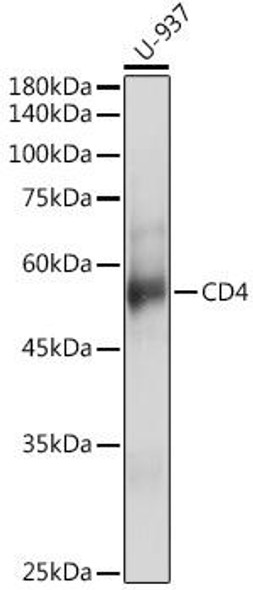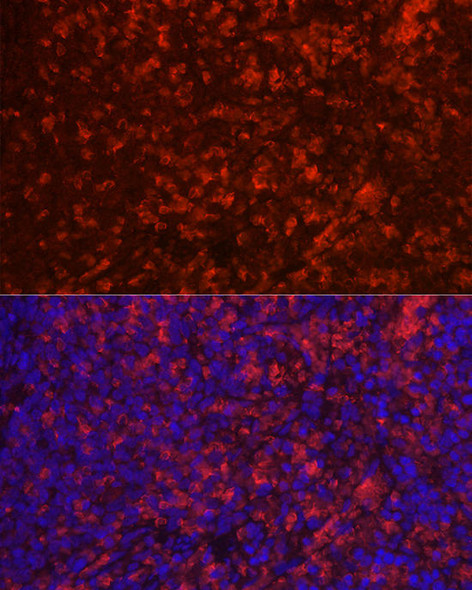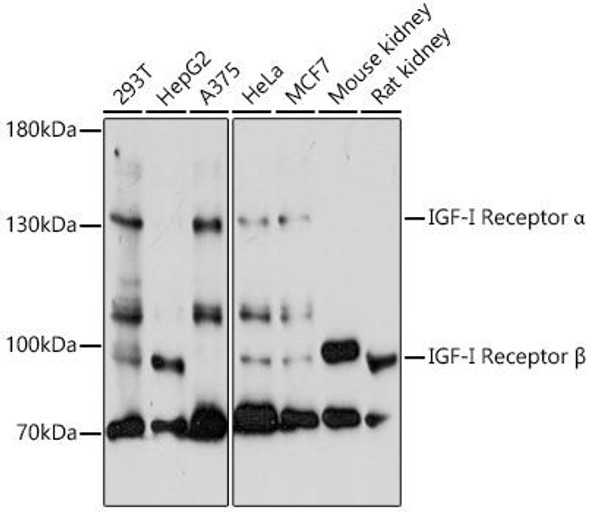Description
ATP5G2 Rabbit Polyclonal Antibody (CAB18279)
The ATP5G2 Polyclonal Antibody (CAB18279) is a valuable tool for researchers studying the ATP5G2 protein, a key component of the mitochondrial ATP synthase complex involved in energy production. This antibody, generated in rabbits, exhibits high reactivity with human samples and has been validated for use in Western blot applications. By binding specifically to ATP5G2, this antibody enables the detection and analysis of the protein in various cell types, making it ideal for investigations in bioenergetics, metabolism, and mitochondrial dysfunction.ATP5G2 is essential for the synthesis of ATP, the primary energy currency of cells, and plays a crucial role in cellular respiration.
Dysregulation of ATP5G2 has been implicated in various diseases, including metabolic disorders, neurodegenerative diseases, and cancer. Therefore, a thorough understanding of the function and regulation of ATP5G2 is vital for developing targeted therapies aimed at modulating energy metabolism and mitigating disease progression.Overall, the ATP5G2 Polyclonal Antibody (CAB18279) serves as a valuable tool for researchers seeking to explore the intricate mechanisms of energy production and mitochondrial function, offering insights that could lead to the development of novel therapeutic strategies for a range of pathological conditions.
| Product Name: | ATP5G2 Rabbit Polyclonal Antibody |
| SKU: | CAB18279 |
| Size: | 20uL, 100uL |
| Isotype: | IgG |
| Host Species: | Rabbit |
| Reactivity: | Human,Mouse |
| Immunogen: | A synthetic peptide corresponding to a sequence within amino acids 50-150 of human ATP5G2 (NP_001002031.1). |
| Sequence: | ATAP HPLK MFAC SKFV STPS LVKS TSQL LSRP LSAV VLKR PEIL TDES LSSL AVSC PLTS LVSS RSFQ TSAI SRDI DTAA KFIG AGAA TVGV AGSG AGIG T |
| Tested Applications: | WB IF/ICC ELISA |
| Recommended Dilution: | WB,1:500 - 1:2000 IF/ICC,1:50 - 1:200 |
| Synonyms: | ATP5A; ATP5G2 |
| Positive Sample: | Mouse kidney,Mouse brain |
| Cellular Localization: | mitochondrial inner membrane, mitochondrial outer membrane, mitochondrial proton-transporting ATP synthase complex, mitochondrial proton-transporting ATP synthase complex, coupling factor F(o) |
| Calculated MW: | 15kDa |
| Observed MW: | 16kDa |
This gene encodes a subunit of mitochondrial ATP synthase. Mitochondrial ATP synthase catalyzes ATP synthesis, utilizing an electrochemical gradient of protons across the inner membrane during oxidative phosphorylation. ATP synthase is composed of two linked multi-subunit complexes: the soluble catalytic core, F1, and the membrane-spanning component, Fo, comprising the proton channel. The catalytic portion of mitochondrial ATP synthase consists of 5 different subunits (alpha, beta, gamma, delta, and epsilon) assembled with a stoichiometry of 3 alpha, 3 beta, and single representatives of the gamma, delta, and epsilon subunits. The proton channel likely has nine subunits (a, b, c, d, e, f, g, F6 and 8). There are three separate genes which encode subunit c of the proton channel and they specify precursors with different import sequences but identical mature proteins. The protein encoded by this gene is one of three precursors of subunit c. This gene has multiple pseudogenes.
| Purification Method: | Affinity purification |
| Gene ID: | 517 |
| Storage Buffer: | Store at -20℃. Avoid freeze / thaw cycles.Buffer: PBS with 0.01% thimerosal,50% glycerol,pH7.3. |

